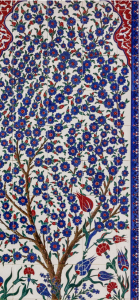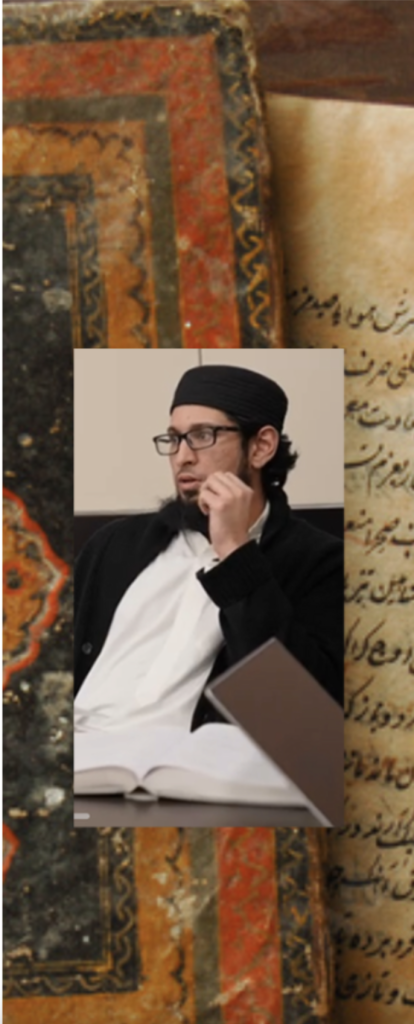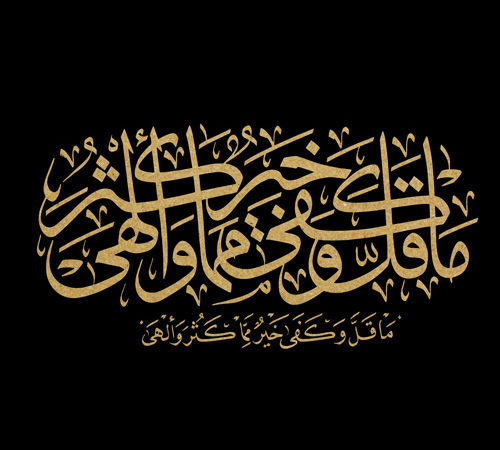Department of Islamic Law teaches fiqh (lit. understanding) which Abū Ḥanīfah, the founder of the earliest and largest Islamic legal school, has defined as knowledge of one’s rights and responsibilities (معرفة النفس ما لها وما عليها). Fiqh differs from western conceptions of law in three respects:
Fiqh is an extensive field of knowledge that consists of two main disciplines: Furū’ al-fiqh(legal rulings) and Uṣūl al-fiqh (legal methodology). While furū’ teaches the rulings which have been derived from the sources of Islamic law, the Qurʾān, Sunnah, Ijmāʿ (consensus), and Qiyās (legal analogy), uṣūl discusses the methodology of legal derivation from revelation.
Fiqh encompasses a variety of sub-disciplines including:
The department aims to give the student firm grounding in the furū’ and uṣūl of one of the four schools of Sunni law to enable them to do research in all legal fields.
Within the Intermediate Islamic Studies program, the Department of Law teaches furū’ in three levels. At the beginner level, the focus is on understanding legal rulings in classical compendia covering all four major areas of Islamic law, ʿibādāt (law of worship), muʿāmalāt(commercial law), muʿāsharāt (family law) and jināyāt (penal law). Further into the Intermediate program, the student is introduced to ʿilm al-khilāf (comparative law), studying how jurists adduce al-dalāʾil al-naqliyyah wa-l-ʿaqliyyah (evidence based on transmission and thought) to corroborate legal opinions. At the culmination of the Intermediate Islamic Studies program, the student is given a comprehensive understanding of each legal case, integrating furū’, uṣūl, and khilāf.
The Intermediate Islamic Studies program level teaches usūl al-fiqh in two levels. Initially, a short primer is taught to introduce the students to the terminology and basic principles of Islamic legal methodology. At the second level, a classical work of legal methodology is studied in detail. At the completion of this study, students understand all major topics of the subject and are able to conduct further research in the field. al-Qawāʿid al-fiqhiyyah and Iftā (qualifications to be a mufti) are introduced within the Advanced Islamic Law and Islamic Theology program.
The “life of a fatwa” begins in Darul Qasim College’s Department of Islamic Law. Where well-trained eyes, ears, and minds handle each question with the utmost care and concern. However, before going into the details of the process, one must understand the academic space and scholarship that gives life to these fatawa.
The department of Islamic Law houses one of the most academically rigorous and intellectually advanced programs in the College: the Darul Iftāʾ program. Your tour guide for this part of the journey is department chair, Mufti Hisham Dawood. His role is to help you better understand this particular program’s scholarly training, the types of people that are being trained, the fatwa process, and the tremendous amount of academic research being done that is seldom understood by the community.
The Iftā track is offered to those students who have completed the Intermediate Islamic Studies program and understand all major topics of the subject and are able to conduct further research in the field. Mufti Hisham elaborates:
“The focus that we as a department have is what we call building aptitude. Which means the student isn’t only spoon fed something, bu t they’re also taught how to come to conclusions by themselves. Fiqh in its meaning, means understanding or a very deep understanding. If you have fiqh, you have a very deep understanding of these issues and of these chapters that you are studying. The idea is that you’re able to answer any question that comes up, I mean you have the aptitude to do it. It requires a certain amount of research, collaboration, and corroboration with others in their fields. Yet, what is important and this is the objective of our department is that we are able to produce these trainees, these students who have the fiqh.”
t they’re also taught how to come to conclusions by themselves. Fiqh in its meaning, means understanding or a very deep understanding. If you have fiqh, you have a very deep understanding of these issues and of these chapters that you are studying. The idea is that you’re able to answer any question that comes up, I mean you have the aptitude to do it. It requires a certain amount of research, collaboration, and corroboration with others in their fields. Yet, what is important and this is the objective of our department is that we are able to produce these trainees, these students who have the fiqh.”
The Iftā program is open to both men and women who qualify for enrollment. The department has sought out potential prospects from the existing student body, both male and female. Mufti Hisham emphasizes the importance of taking into consideration how much a student can consume. He shares:
“One term that is used often in Islamic Studies is ‘alim al-murabbi or ustaz al-murabbi. They use this word murabbi, it comes from tarbiya. Part of tarbiya, nurturing, is that you know each student at his or her level. They’re given that much knowledge and that much information is passed on to them. And slowly, their bank of knowledge or if you want to call it their bank of ilm is slowly populated. Until they become this mature tree of knowledge. They are then able to eat from those fruits and pass it on to others as well.”
The high level objectives and rigorous curriculum is coupled with a pedagogy that is rooted in nurturing the student and being practical about the student’s aptitude. The teacher-student relationship is at the heart of the college’s authentic and structured approach to studying the Islamic Sciences.
The training to become a mufti or muftiyah through the Iftā program exemplifies Darul Qasim College’s approach to training students in a way that is relevant to the here and now. They are inculcated with a teaching philosophy that does not oversimplify but rather complicates what appears to be a simple clear cut approach to answering life’s questions through the lens of an Islamic understanding and ruling. These curricular and pedagogical approaches take us beyond what we may assume it means to engage with traditional texts, methodologies and a belief system that goes back more than 1400 years. In these classroom spaces, tradition is brought to life and takes on a fluid nature–permeating the responses to questions sent from individuals living in the United States and around the globe.
Darul Qasim College’s faculty with the help of their Iftā students have researched and responded to fiqh related inquiries from all over the globe. This has resulted in the recording of over 1500 fatāwā, archived within the walls of the College and sometimes revisited perhaps for curricular and pedagogical purposes. This academic engagement is not only key to the intellectual and academic training of students in advanced studies, but it is also an act of community engagement and service. Yet, this tremendous contribution and the amount of work that goes into this process remains unnoticed.
 For the last portion of the tour, you are invited into Mufti Hisham’s classroom as he works with an Iftā student on one of his daily questions. Fresh off the internet, the question reveals many layers. Mufti Hisham reminds his student of a key component: the legal analysis of the question. He gently nudges, “the answer is based upon the analysis of the question.” He urges him to spend time with the question in order to understand it–”What is the question actually asking? Who is asking (gender, age, country, etc.)?”
For the last portion of the tour, you are invited into Mufti Hisham’s classroom as he works with an Iftā student on one of his daily questions. Fresh off the internet, the question reveals many layers. Mufti Hisham reminds his student of a key component: the legal analysis of the question. He gently nudges, “the answer is based upon the analysis of the question.” He urges him to spend time with the question in order to understand it–”What is the question actually asking? Who is asking (gender, age, country, etc.)?”
Another component of this process is research. Students learn the methodology of research alongside a holistic understanding of the content of Islam found in classical research texts. He is careful to point out to the student the importance of ensuring the content is fit for the context of the question, paying particular attention to time and place. To further clarify, he explains the importance of consulting with experts for background in subject matter. The department has a team of medical professionals, lawyers, and other working professionals that give their qualified expertise to the question when the need arises.
After much analysis and academic research, the Ifta’ student is now ready to answer the daily question. Once answered, faculty will review the question and ensure the answer is valid and worded in a clear and concise way for the questioner. The answer is then reviewed by other faculty in the Ifta’ Program and then approved to be sent back as a fatwā.
The “life of a fatwā” offers a glimpse into the intellectual aptitude that is being nurtured and honed by faculty like Mufti Hisham in the department of Islamic Law. The days and weeks that go into what appears to be a straightforward question reveals the academic integrity and rigor that is at the heart of the college’s curricular and pedagogical approach.
Begin your Journey
Minors are not eligible to enroll in full-time or part-time programs at Darul Qasim as a standard policy.
Darul Qasim reserves the right to approve or reject an applicant’s admission as a full-time or part-time student.
